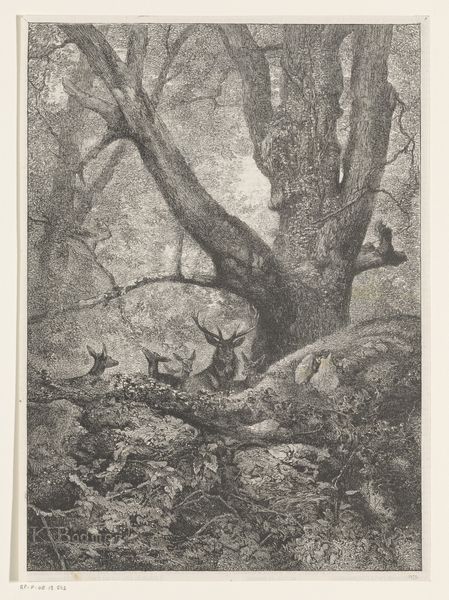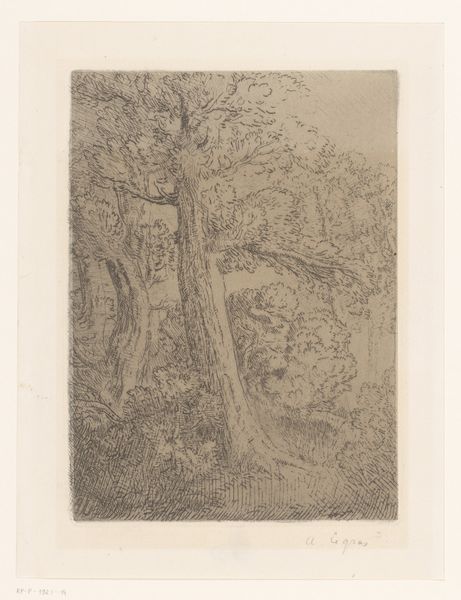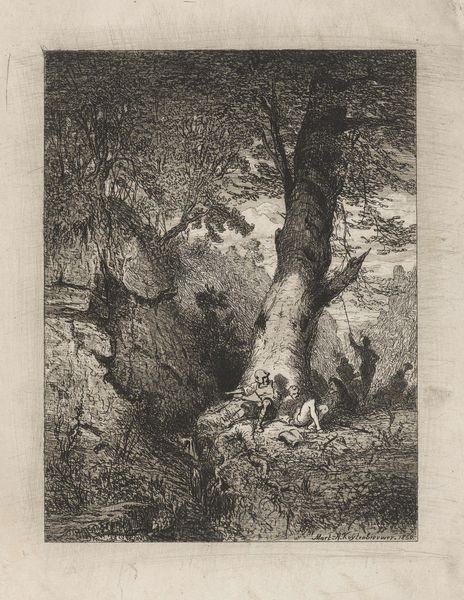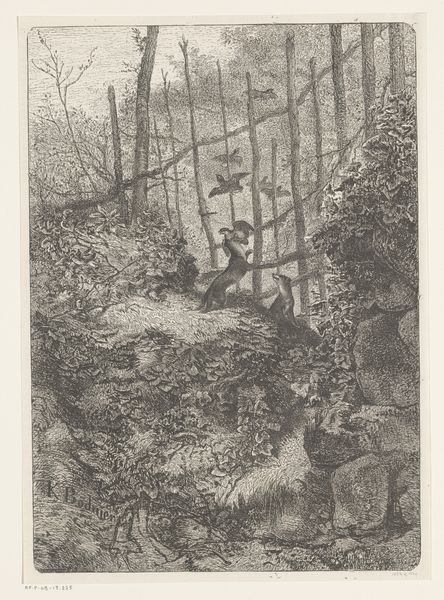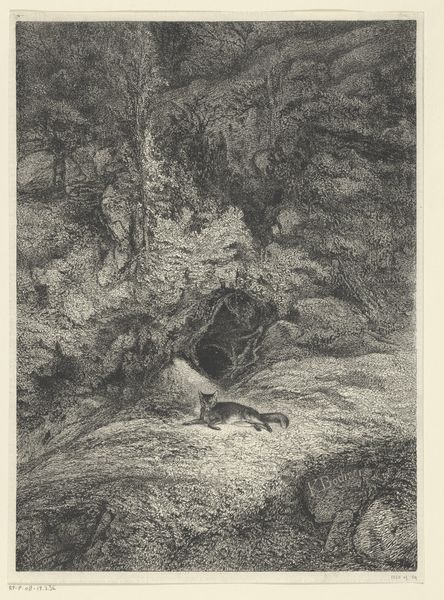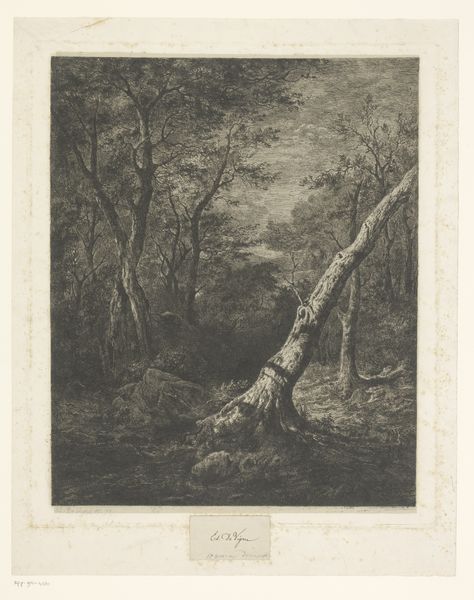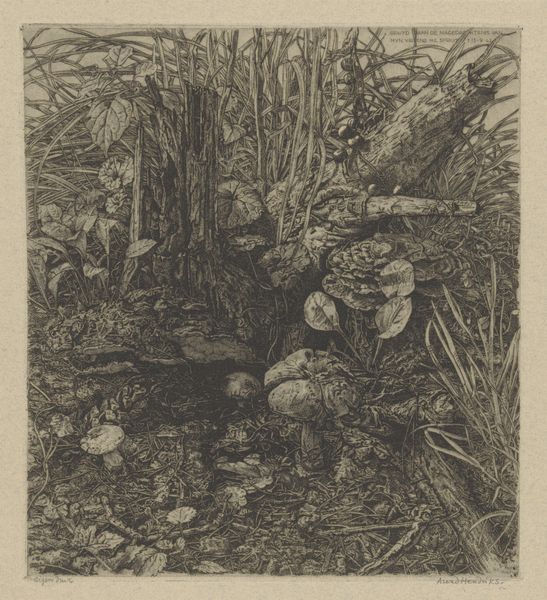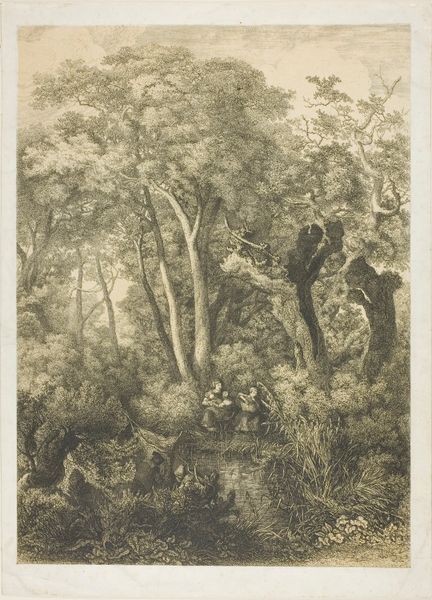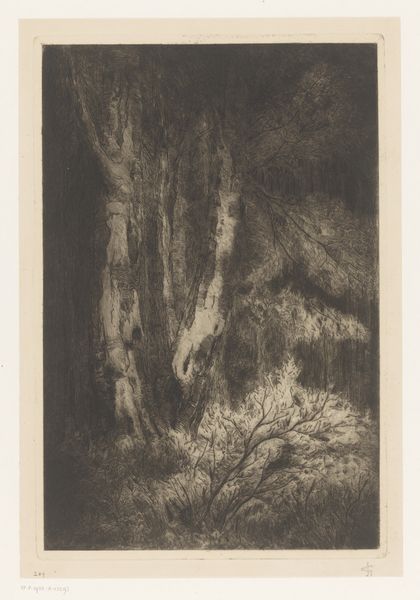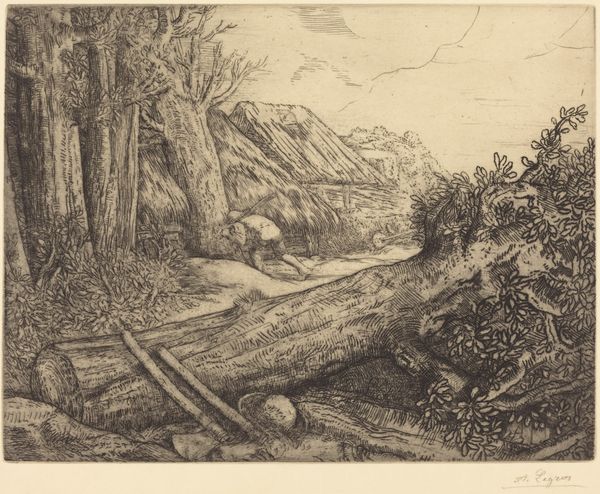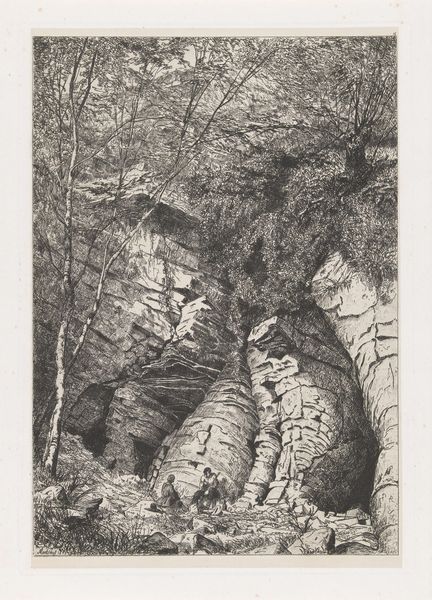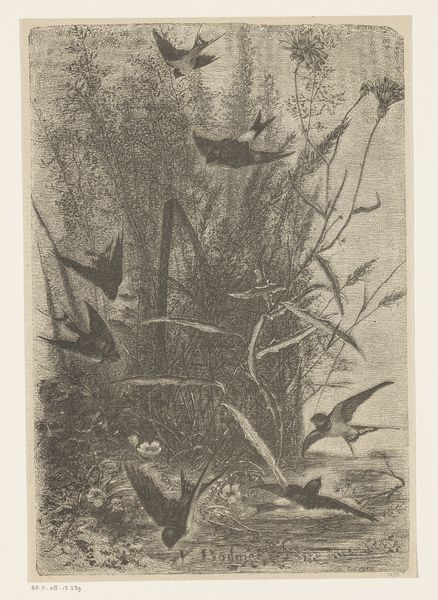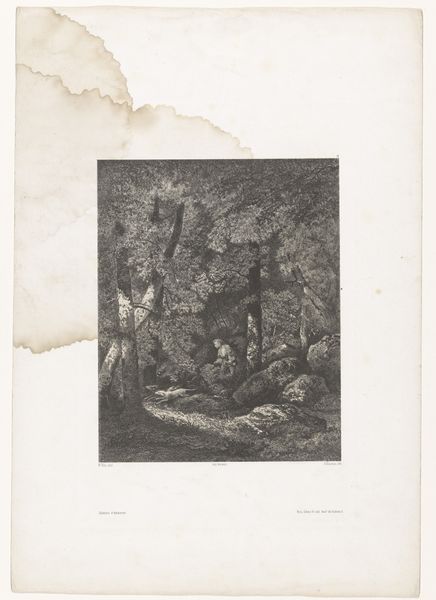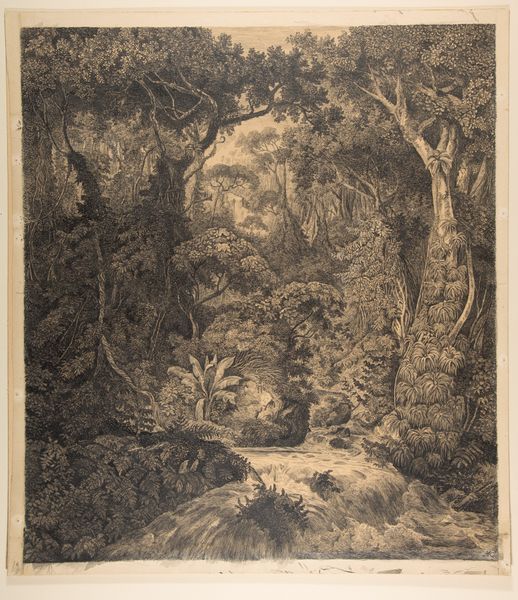
print, engraving
# print
#
landscape
#
figuration
#
engraving
#
realism
Dimensions: height 335 mm, width 235 mm
Copyright: Rijks Museum: Open Domain
Editor: This is Karl Bodmer’s 1868 engraving, “Bird of Prey on a Branch with a Captured Squirrel.” It’s quite dark, almost brooding, isn’t it? What do you see in this piece? Curator: The intensity you’re sensing resonates with the broader social context of the late 19th century. We see an unflinching depiction of predator and prey which is not uncommon but must remember this scene comes at a time when the burgeoning industrial revolution intensified anxieties about competition and survival. How do you think Bodmer is subtly commenting on societal power structures? Editor: It’s hard to miss the power dynamic, right? The hawk's got the squirrel, end of story. Is that squirrel meant to be a symbol for the lower classes? Curator: That’s one compelling way to view it! This resonates when we bring in Gramsci's idea of hegemony. Consider how "natural" hierarchies are reinforced. Bodmer's choice of landscape—overgrown, tangled—further contributes to the mood of struggle. Doesn’t the almost claustrophobic forest underscore this sentiment? Editor: Yes, absolutely. It's not some idyllic pastoral scene; it's a battleground. Do you think Bodmer might be romanticizing that struggle? Curator: It's a fascinating question. Instead of romanticizing, he offers a realistic vision tinged with harshness. His earlier works include sensitive, albeit sometimes problematic, portrayals of indigenous communities during a period of westward expansion. Therefore we should reflect: To what extent is the hawk an echo of those colonizers exerting dominance? Editor: That connection had eluded me, but it certainly gives the piece a new weight. The engraving becomes much more complex. Curator: Precisely! By weaving in history, philosophy, and a critical perspective, we find so much more in Bodmer's image. Editor: I’ll never look at nature scenes quite the same way. Curator: And that is exactly the point! Art invites us to examine and challenge, not merely observe.
Comments
No comments
Be the first to comment and join the conversation on the ultimate creative platform.
